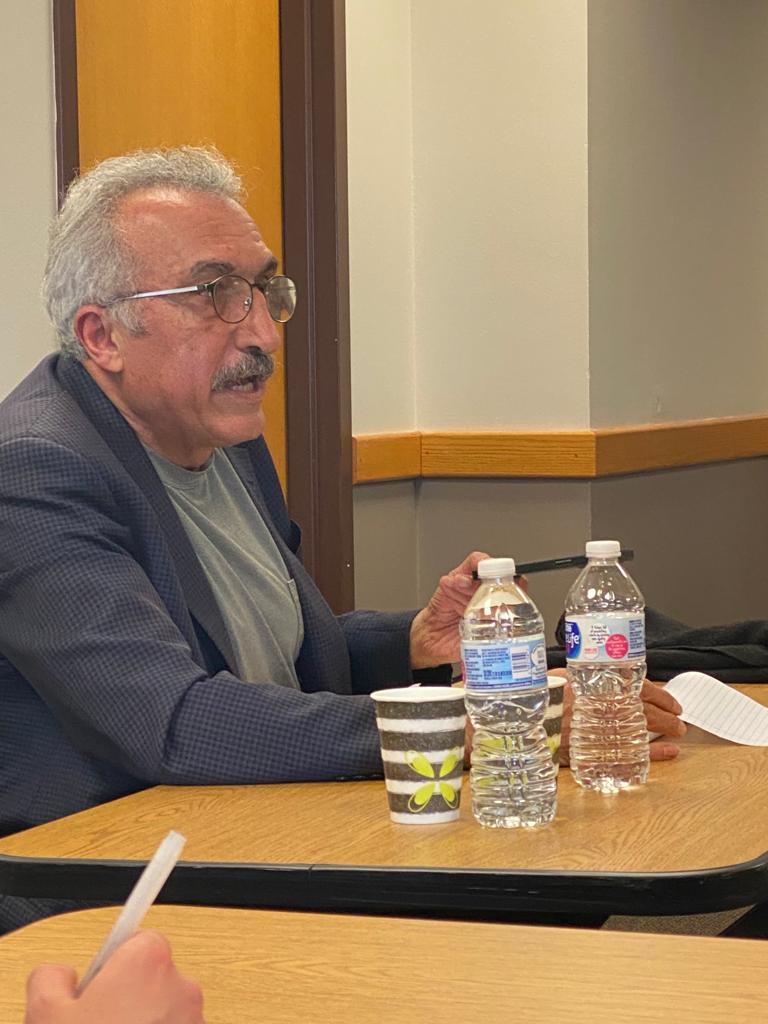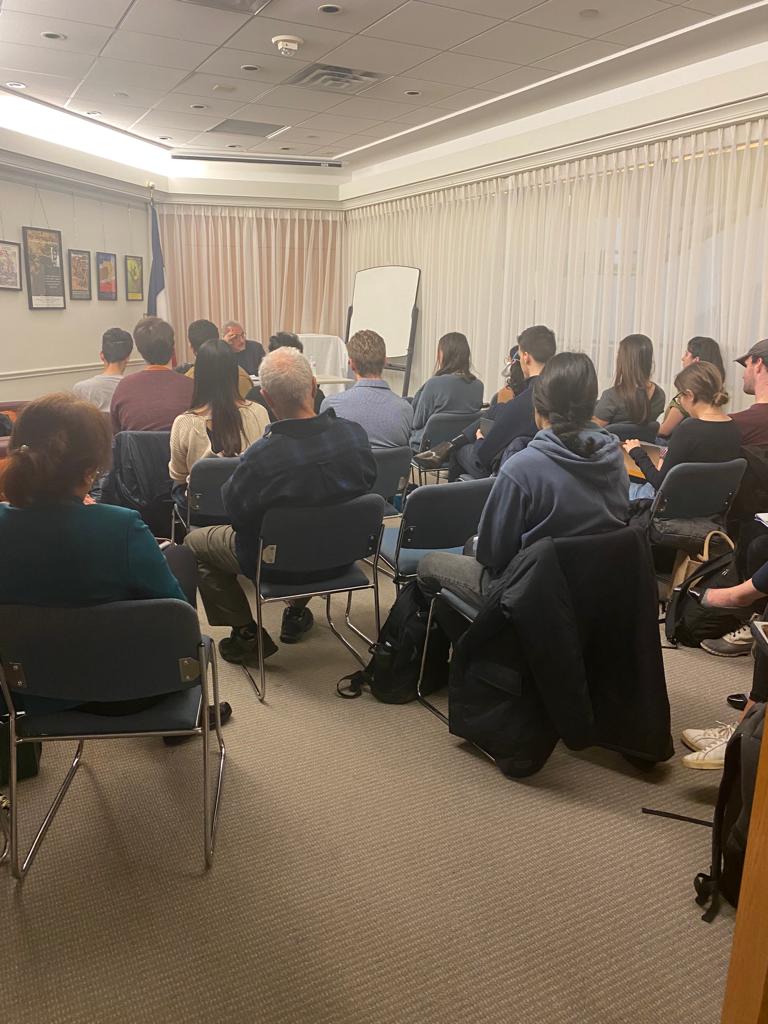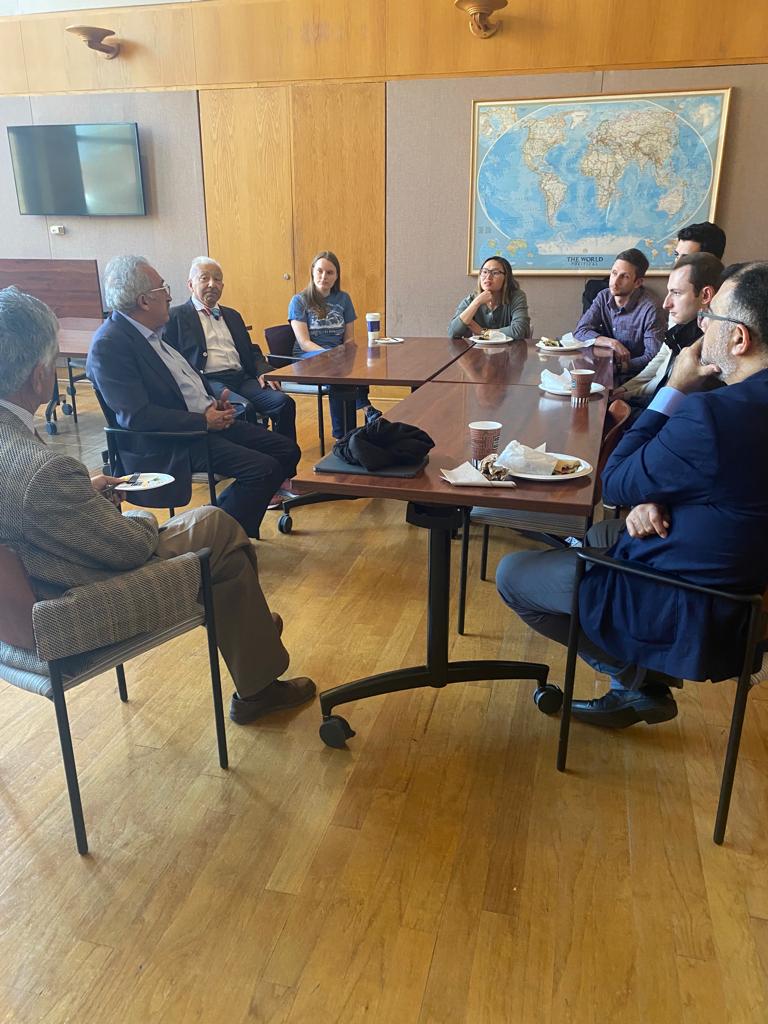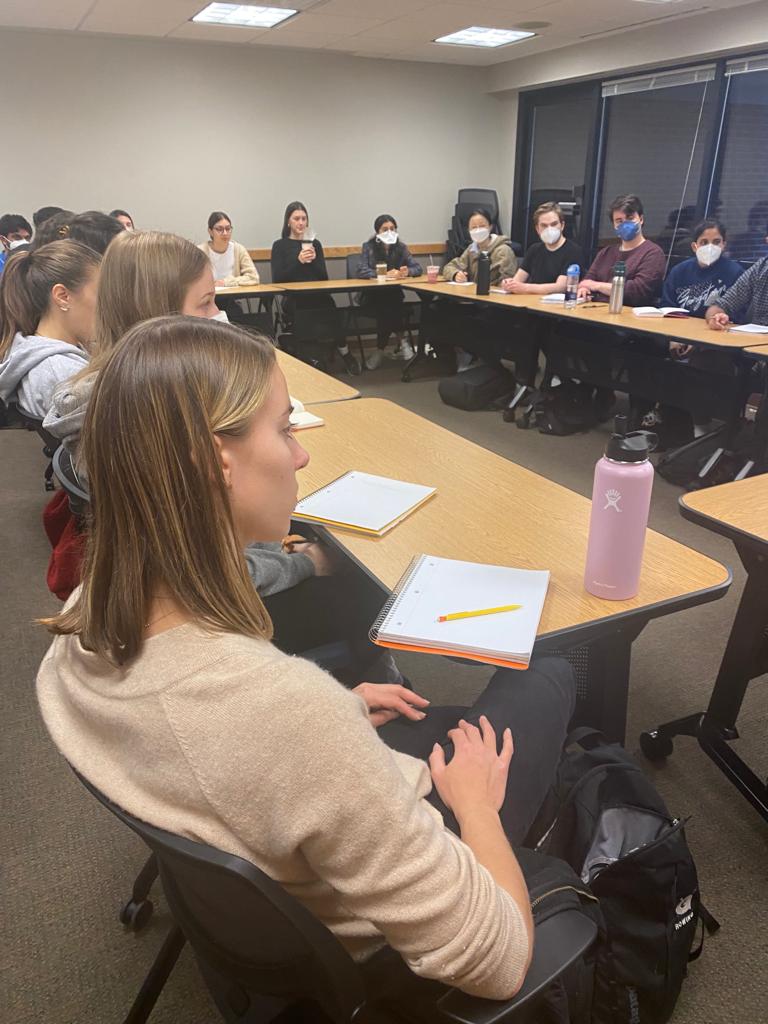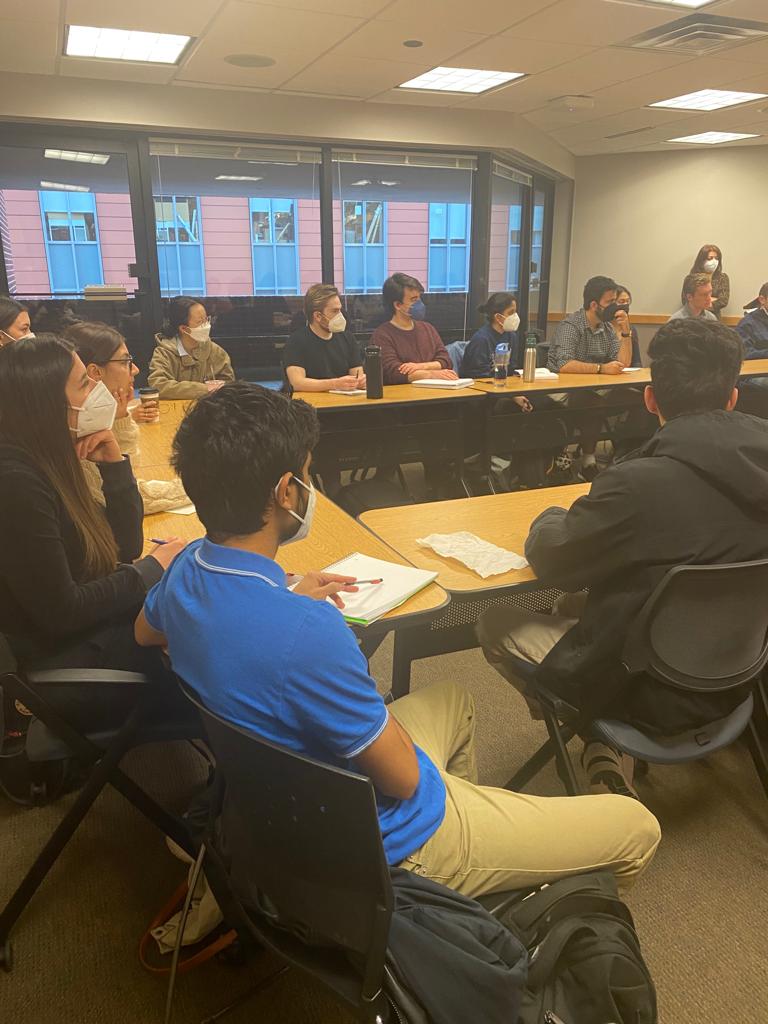Sheikholeslami-Batmanghelidj Events
Iranian Studies Visiting Scholar Dr. Abbas Amanat
April 22-26, 2024

The Persian Studies program looks forward to welcoming Dr. Abbas Amanat to campus from April 22 to 26, 2024, as our 2024 Sheikholeslami-Batmanghelidj Iranian Studies Visiting Scholar.
Abbas Amanat is William Graham Sumner Professor Emeritus of History at Yale University. A graduate of Alborz high school, he received his B.A. from Tehran University in 1971 and his Doctorate of Philosophy from the School of Oriental Studies, University of Oxford, in 1981. He taught at Yale University between 1983 and 2021. He has written about early modern and modern history of Iran, the Middle East, the Muslim world and the Persianate world. His book publications include Ahd-e Qajar va Sawda-ye Farang (Qajar Covenant and European Allure) (London: Mehri Publication, 2021); Iran: A Modern History (New Haven: Yale University Press, 2017), paperback and e-book (New Haven: Yale University Press, 2019), and audiobooks (Tentor, 2019); Apocalyptic Islam and Iranian Shi’ism (London and New York: I B Tauris, 2009); Pivot of the Universe: Nasir al-Din Shah Qajar and the Iranian Monarchy, 1831-1896 (Berkeley and Los Angeles: University of California Press, 1997), paperback (London and New York: I B Tauris, 2008), audiobooks (Tentor, 2021), Persian translation: Qebleh-e ‘Alam (Tehran: Nashr-e Karnameh, 2004); Resurrection and Renewal: the Making of the Babi Movement in Iran, 1844-1850 (Ithaca: Cornell University Press, 1989), second ed. (Los Angeles: Kalimat Press, 2005).
Amanat has co-authored, Az Tehran ta ‘Akka: Babiyan va Baha’iyan dar Asnad-e Dowran-e Qajar (From Tehran to ‘Akka: Babis and Baha’is in the Official Records of Qajar Iran) with Fereydun Vahman (New Haven: Ashkaar Publishers, 2016). He has edited Crowning Anguish: Memoirs of a Persian Princess from the Harem to Modernity (Washington DC: Mage Publishers, 1995, 2nd ed. Mage Publishers, 2020), audiobook (Mage Publishers, 2020) and Cities and Trade: Consul Abbott on the Economy and Society of Iran (London: Ithaca Press, 1983).
Amanat has coedited The Persianate World: Rethinking a Shared Space, with Assef Ashraf (Leiden: Brill Publishers, 2019); Iran Facing Others: Identity Boundaries in a Historical Perspective, with Farzin Vejdani (New York: Palgrave Macmillan, 2012); Is There a Middle East: The Evolution of a Geopolitical Concept, with Michael E. Bonin et al (Stanford: Stanford University Press, 2011); Shari’a: Islamic Law in the Contemporary Context, with Frank Griffel (Stanford: Stanford University Press, 2007, paperback: Stanford: Stanford University Press, 2009); U.S.-Middle East Historical Encounters: A Critical Survey, with Magnus Bernhardsson (Gainesville: University Press of Florida, 2007); Apocalypse and Violence, with John J. Collins (New Haven: Yale Council on Middle East Studies, 2004); and Imagining the End: Visions of Apocalypse from Ancient Middle East to Modern America, with Magnus Bernhardsson (London and New York: I B Tauris, 2002). Amanat has also coedited with Morad Tahbaz a special issue entitled “Environment in Iran: Changes and Challenges,” Iranian Studies: vol. 49. No. 6 (December 2016). He has published new editions (with extensive introductions) of E.G. Browne’s, The Persian Revolution (Washington DC, 1995) and C.J. Wills’, The Land of the Lion and the Sun (Washington DC 2004). For his other publications, including scholarly articles and encyclopedia entries, see https://yale.academia.edu/AbbasAmanat .
Amanat’s Tarikh-negari va Bazyabi-ye Hoviyyat-e Irani (historiography and rediscovery of Iranian identity) will be published in 2025 (New Haven: Nashr-e Ashkaar). His coedited volume, The Caspian World in Early Modern and Modern Times with Kevin Gledhill and Kayhan Nejad (Ithaca: Cornell University Press) will appear in 2024. Amanat is the Editor-in-Chief of Sources for the Study of the Persianate World series. The first volume in this series: E‘tesam al-Din, Shagarf-nameh Welayat will be published in 2025 (Brill Publishers: Leiden and Boston). His Persian Statecraft and Art of Governance will be published in 2025 (New Haven: Yale University Press). His works in progress include Tahereh: A Millenarian Feminist, (London: Oneworld, 2025) and World circa 1800: the Eclipse of the Persianate and Emergence of a New Imperial Order.
Amanat is a Consulting Editor and longtime contributor to Encyclopedia Iranica. His major entries in EIr include: “Constitutional Revolution” (1994); “Great Britain in Qajar Persia” (2002); “Hajji Baba of Ispahan” (2003); “Historiography of Qajar Iran” (2004); “Historiography of Pahlavi Iran” (2004) and “Islam in Iran: Messianism” (2007). He was a Carnegie Scholar of Islamic Studies (2005-2007) and recipient of the Mellon-Sawyer Grant for comparative study of millennialism (1998-2001). He was the Bahari Visiting Fellow in the Persian Art of Books at Bodleian Library, University of Oxford, in 2018 and Christensen Fellow at St. Catherine’s College, University of Oxford, in 2019. He is the director of the Ghasem Ghani Project at Yale University Library. He has served as the Editor-in-Chief of Iranian Studies, the journal of the Association for Iranian Studies (1991-98), as the Chair of the Council on Middle East Studies, Yale University (1993-2004) and as the Director of the Yale Program in Iranian Studies at the Yale MacMillan Center for International and Area Studies (2005-2021).
This week of events is sponsored by the Sheikholeslami-Batmanghelidj Fund.


